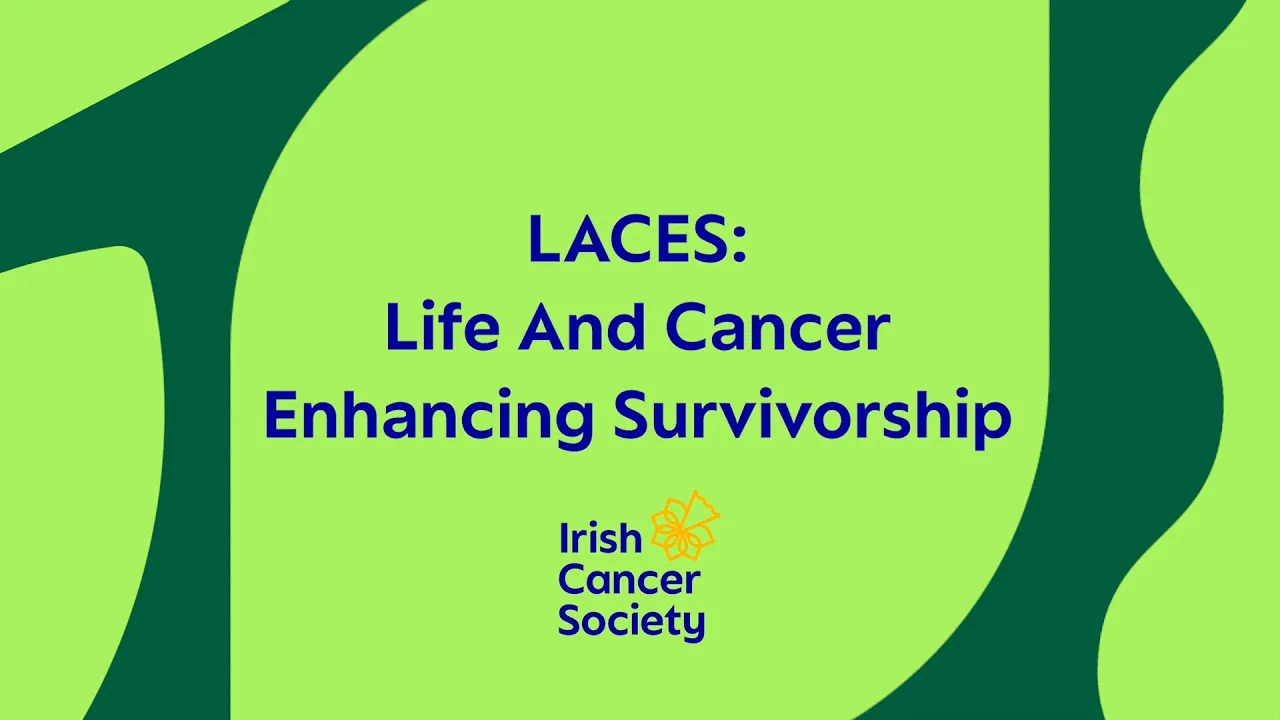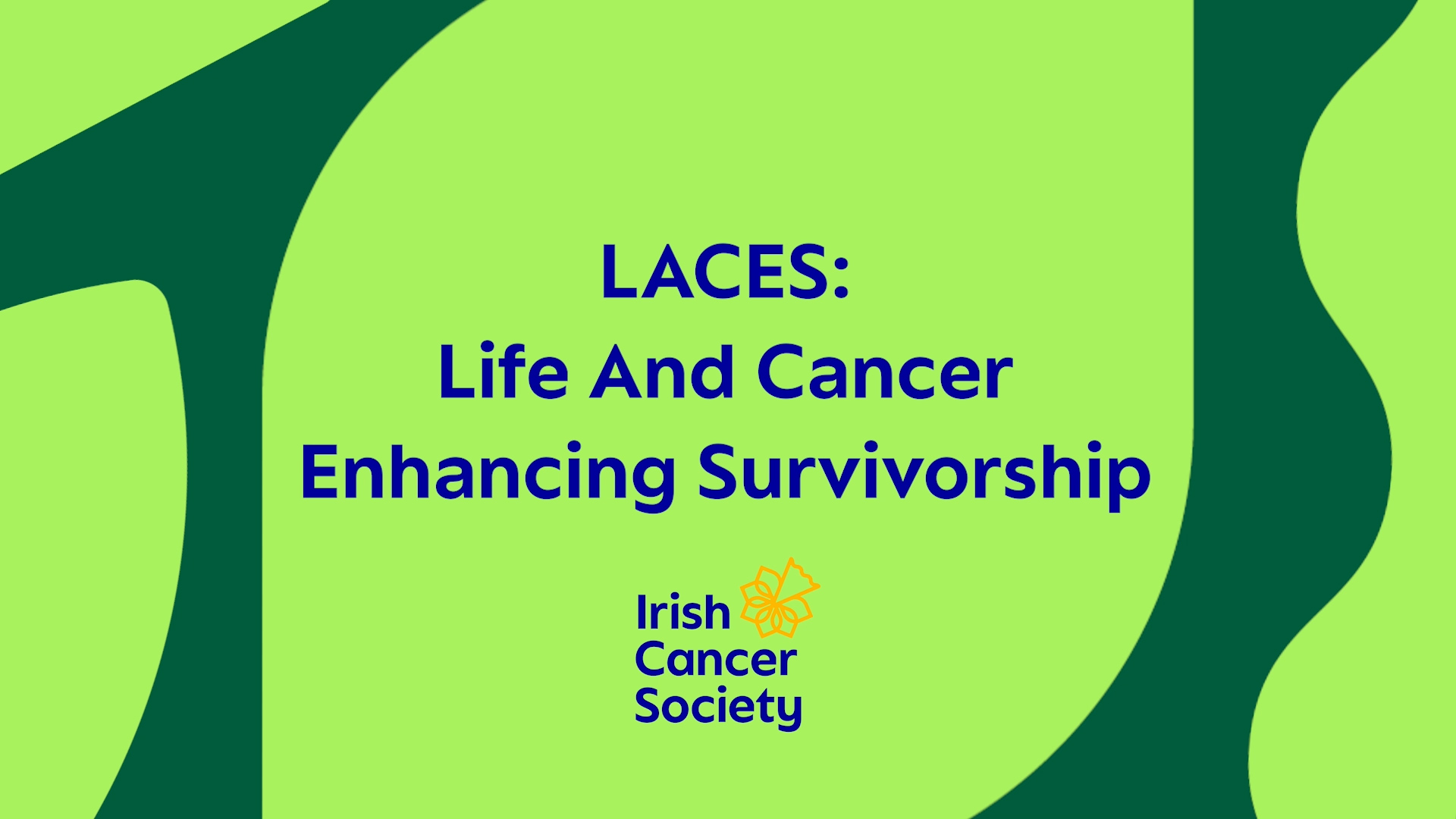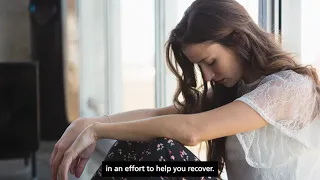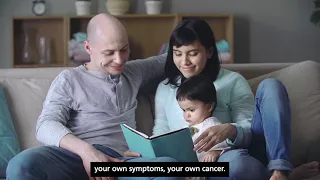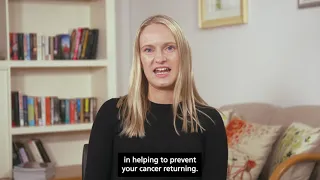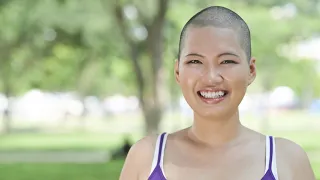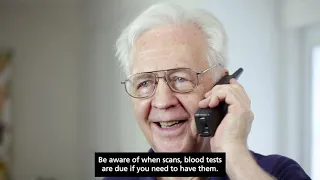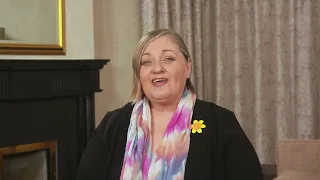LACES 2: Movement
LACES: Life And Cancer - Enhancing Survivorship. A workshop from the Irish Cancer Society. Part 2: Movement
0:01
LACES, Life And Cancer - Enhancing Survivorship Workshop.
0:09
Module 2: Movement and Exercise – In this module, we discuss the benefits of exercise – how much to exercise, how to stay motivated, balancing activity and rest, and how exercise can help with fatigue.
0:28
Question: My therapist tells me to keep moving, but I feel like my body needs to rest. What's best?
0:34
After your cancer treatment, you may find that you're less physically active than before, and this is quite natural and is often due to fatigue and the side-effects of your treatment.
0:44
In the past, we would have told you to rest up and limit your activity in an effort to help you recover. However, we now know that too much rest can actually slow your recovery by causing muscle weakness and reduced physical fitness.
0:57
So today, we are encouraging you to keep or become active after your cancer treatment, but very much at a pace and in a way that suits you as an individual.
1:06
Question: What are the benefits of being physically active?
1:13
Not only will it help you to recover from some of the side-effects of your cancer treatment, such as fatigue and muscle weakness, but we also know that there are lots of other benefits to being active in so far as that it reduces your likelihood of developing some other common medical conditions, such as heart disease, type 2 diabetes, and stroke.
1:33
We also know that it helps to strengthen bones. It can help manage and maintain a healthy weight. It can improve mood and reduce stress levels. And it can also reduce your risk of falling.
1:45
From a cancer perspective, we know that being regularly physically active reduces your chance of developing some cancers. So, in summary, being regularly physically active improves your recovery after cancer treatment and reduces your likelihood of developing some cancers and other common medical conditions. And overall improves your wellbeing and quality of life.
2:07
Question: I am exhausted. How do I get started?
2:13
Often when people are starting to become physically active, a problem that we find is that they do too much too soon, feel awful after the exercise and think, “Gosh, exercise is bad, I'm not going to do that again.” But very often, it wasn't the exercise or the physical activity, but just that you did too much too soon. There's often no reason after very challenging cancer treatment, why you can't become physically active on some level.
2:37
Sometimes after cancer treatment, it's not about being active at a very high level, but just breaking that cycle of inactivity. So, in terms of getting started, start slowly and build up slowly. Even if you can incorporate just a few minutes of activity into your day, that will benefit you.
2:52
So, in terms of how you feel as you exercise, if you're going for a walk, you might find that as you progress into your walk, your heart rate starts to speed up a little bit, maybe your breathing starts to speed up, but at all times you can hold a comfortable conversation.
3:07
We would say that comfort is key. If you're starting a new activity, you might find that you do feel a little bit of soreness after the activity, but normally, this soreness would go away quite quickly.
3:18
We would ask you to pay particular attention to any new pain. So that's a new pain that is getting worse over time, isn't going away, or perhaps comes on at night. We would ask you if you get any pain such as this, to maybe go and talk to your doctor. So just remember that comfort is key and just be mindful of soreness versus pain.
3:42
Question: Some days I don't feel like doing anything. How can I get motivated?
3:49
In terms of motivating yourself, if you are suffering from fatigue, maybe have a look at the last few days and see were there are periods during your day when you had more energy. If there were, maybe try and incorporate some activity into these periods. You'll find that the activity is easier to do and that you enjoy it more.
4:06
Maybe set yourself some small but realistic goals. For example, even by the end of the month, could you be walking to and from the local shop to get your paper on every second day? And sometimes the goals are as small as that. They have to be individual and achievable for you.
4:21
Make exercise social. Often, walking with a friend can make an activity or a walk more enjoyable. The other thing is, if you know that you're due to walk with a friend at 5 o'clock and at 10 to 5, you feel like cancelling, you're less likely to cancel if they're depending on you.
4:36
In the links that support this workshop, you'll find out more about some of the support groups and walking groups.
4:44
Question: What level of activity is right for me?
4:49
Everyone is different, and what suits one person will not suit another. There really is no one size that fits all. The general guidelines though are encouraging you to build up to 30 minutes of moderate intensity of exercise on 5 days of the week. Or 150 minutes of moderate intensity exercise over the course of the week.
5:09
Also, we would encourage you to incorporate strengthening exercises into your week on 2 days of the week. So, strengthening exercises are any exercises that make your muscles tire. Because if they're becoming tired, you're overloading them and they will strengthen. So that can be as simple as walking, it might be stepping up and down off a stairs, or it can be any activity just that suits you.
5:30
We would also encourage you to incorporate stretching and balance exercises into your week also. Often, yoga is a nice activity that incorporates both these elements. With yoga, there is both restorative yoga and entry level yoga, and often this can be a nice introductory level that can bring you along at a slow pace. The other nice thing about yoga is at the end of most sessions, there is a relaxation piece, which can often be very welcome after cancer treatment.
5:57
All that said, sometimes these guidelines aren't realistic or reasonable for you as an individual. So, use them as a guide, but very much go at your own pace.
6:08
Any activity is better than no activity.
6:14
Question: Do I need to check with my doctor before I exercise?
6:20
If, however, you are new to exercise or have any concerns or have any past medical conditions such as heart disease, then yes, we would encourage you to speak to a doctor before starting your activity, just to get some advice.
6:34
Question: Is cancer fatigue a real complaint?
6:40
Yes, cancer-related fatigue is very real. And it is usually described as an overwhelming tiredness that isn't usually relieved by rest or sleep, and in that way, it's unlike a normal tiredness. It affects most people either during or after their cancer treatment. It can last for days, weeks, or several months, or in some people it can actually last for years after their treatment.
7:06
Cancer-related fatigue is very complex and there are many factors that can cause it. We know that the cancer itself can cause fatigue, and so can some of the treatments for cancer, such as chemotherapy and radiotherapy.
7:18
During treatment and in the weeks after treatment, you will naturally find an increased need to rest and may reduce your physical activity levels. This may cause muscle weakness and reduce your physical fitness, which can ultimately make your tiredness worse.
7:35
So, we would actually encourage you to balance your rest with some small amounts of physical activity. Sometimes, some of the contributing factors to this fatigue can be reversed. So don't just accept it, maybe go and talk to your GP, your oncologist, or your clinical nurse specialist and get some advice.
7:54
Question: How can I use my energy wisely?
8:00
So, we would advise that you plan your day. Maybe look at the last few days of your week and see were there periods during the day where you had more energy. If there were, maybe plan essential activities or physical activity into these periods during the day.
8:14
So, rest when you need to. Maybe plan aside some rest times during your day. These rest periods should last for no longer than an hour, as anything longer than that may interrupt your night time sleep, and this night time sleep is essential for your recovery. Limit or avoid caffeine or alcohol.
8:33
Another thing to remember is that you can't bank your energy levels for the next day. So, you can't store them up and use them the next day. And for that reason, we would encourage you that each day you use up your energy levels by incorporating some little amounts of activity into your day.
8:49
Question: Who can give me information to help me get more active?
8:56
After cancer treatment, you may experience other symptoms or side-effects of your treatment, which may benefit from physiotherapy management. If so, maybe ask your GP to refer you to local community services or hospital based services. Just make sure that your physiotherapist is both chartered and CORU registered. These are both just quality approval markers for a physiotherapist. It just means that they've come up to standards of care.
9:23
There is more information on how to find a physiotherapist on the links that go alongside this workshop.
9:30
For more information, please visit www.cancer.ie/LACES
LACES: Life And Cancer – Enhancing Survivorship playlist
